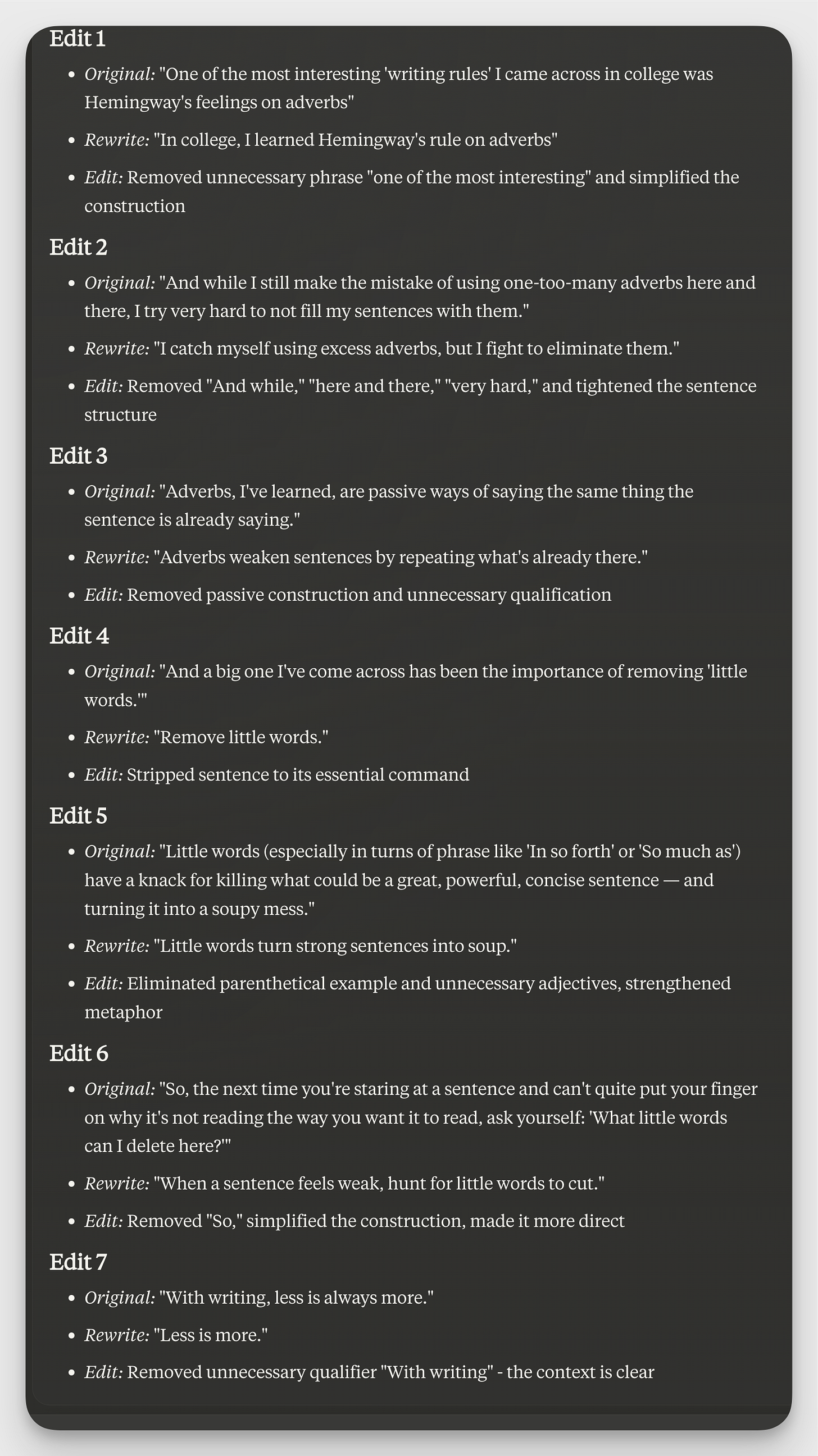Do you know the difference between a good sentence and a GREAT sentence?
One of the most interesting “writing rules” I came across in college was Hemingway’s feelings on adverbs
He hated adverbs.
He called them “lazy writing.”
(Adverbs being any descriptor word ending in -ly: Lazily, Eerily, Honestly, Mostly, etc.)
Learning about that rule changed my writing forever.
Great Writing Is Subtraction
And while I still make the mistake of using one-too-many adverbs here and there, I try very hard to not fill my sentences with them. Adverbs, I’ve learned, are passive ways of saying the same thing the sentence is already saying.
You don’t need them.
But since learning about that rule, and realizing the ways it improved my writing, I started looking for more rules:
And a big one I’ve come across has been the importance of removing “little words.”
Little Words (That) Ruin Sentences
It
So
Just
That
Well
Like
This
Much
Often
Really
Better
Usually
Probably
Sometimes
And, and, and
Little words (especially in turns of phrase like “In so forth” or “So much as”) have a knack for killing what could be a great, powerful, concise sentence — and turning it into a soupy mess.
For example:
[Original sentence]:
“One of the most common changes that occurs when people go off to college is they become different versions of themselves.”
[Rewrite]:
“When people go off to college, they become different versions of themselves.”
Both sentences are saying “the same thing,” and yet the second sentence reads 10x easier than the first.
Why?
We removed all the little words:
One
Of
The
That
Is
So, the next time you’re staring at a sentence and can’t quite put your finger on why it’s not reading the way you want it to read, ask yourself: “What little words can I delete here?”
With writing, less is always more.
Simplify Wordy Sentences With AI (And Make Them Easy to Read)
You can do this manually—or you can let AI handle it for you.
For example:
Even this post can be improved with this prompt.
Claude read this post and suggested 7 different edits.
It identified sentences with adverbs, filler words, and empty phrases. Then it proposed a rewrite, including a reason why.
Now I know how to simplify the post, so it’s easier to understand.
This method saves me hours every week.
Here’s the prompt:
Keep reading with a 7-day free trial
Subscribe to Write With AI to keep reading this post and get 7 days of free access to the full post archives.






